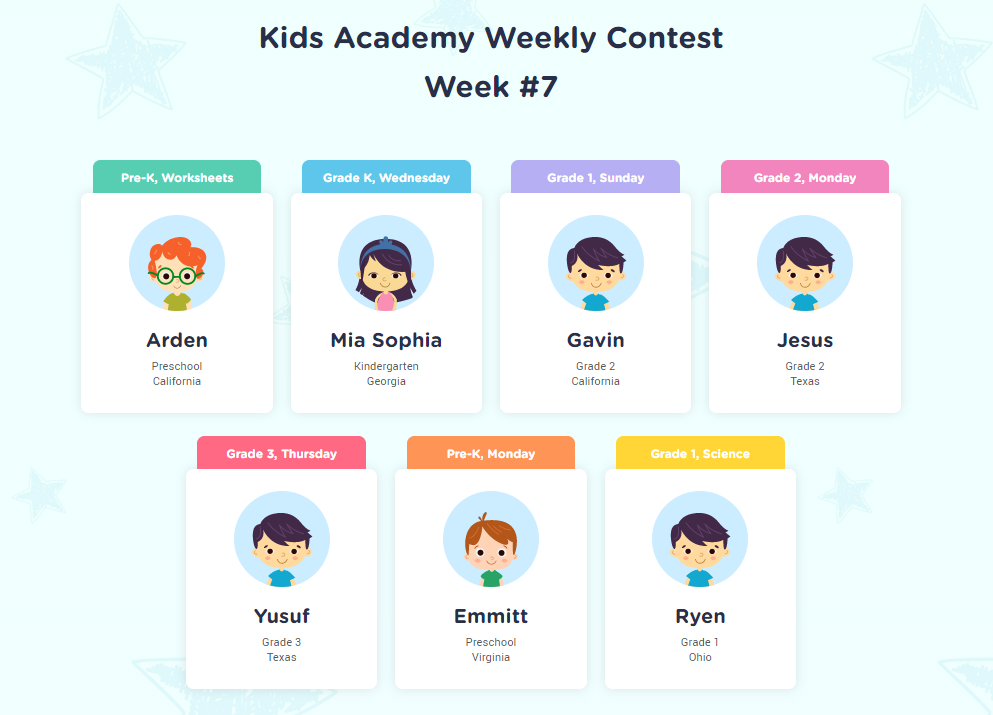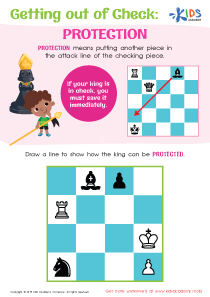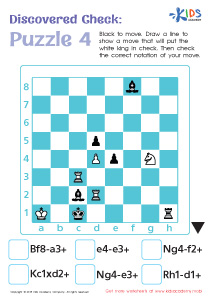Problem-solving practice Chess Worksheets for Ages 4-7
3 filtered results
-
From - To
Unlock your child's cognitive potential with our engaging Problem-solving Practice Chess Worksheets for ages 4-7! These expertly designed worksheets offer a fun, interactive way to introduce young learners to the exciting world of chess, fostering critical thinking and strategic planning. Each worksheet provides age-appropriate challenges that build crucial problem-solving skills while keeping children entertained and motivated. Ideal for home or classroom use, our printable resources encourage cooperative play and intellectual growth, giving your child a head start in both academics and life. Visit Kids Academy to begin this intellectual adventure today!
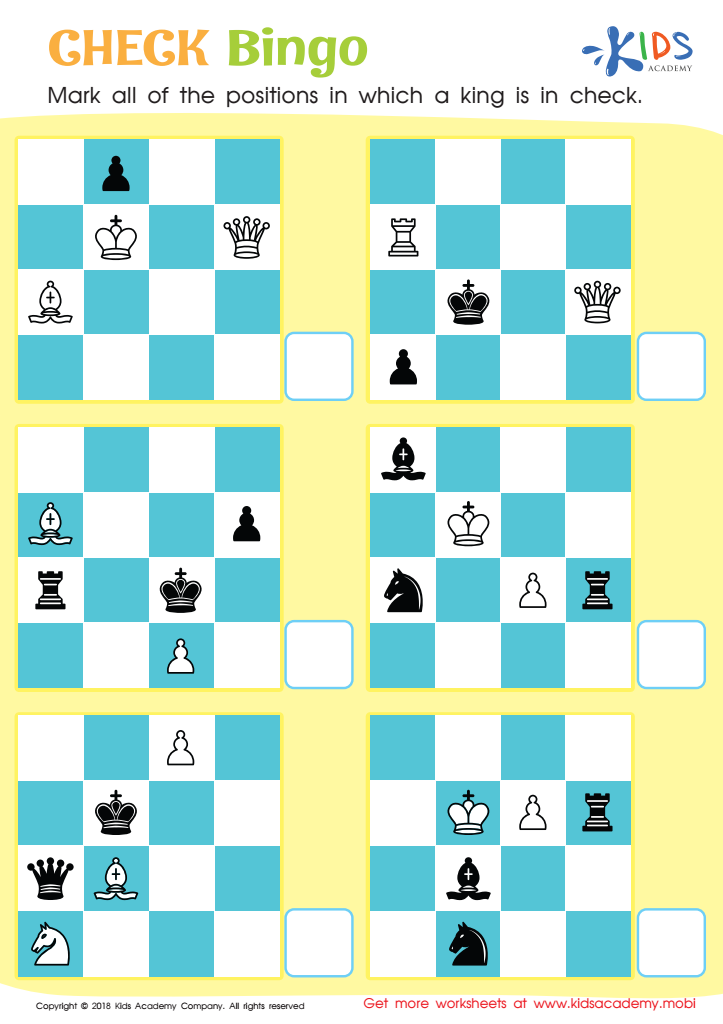

Check Bingo Worksheet
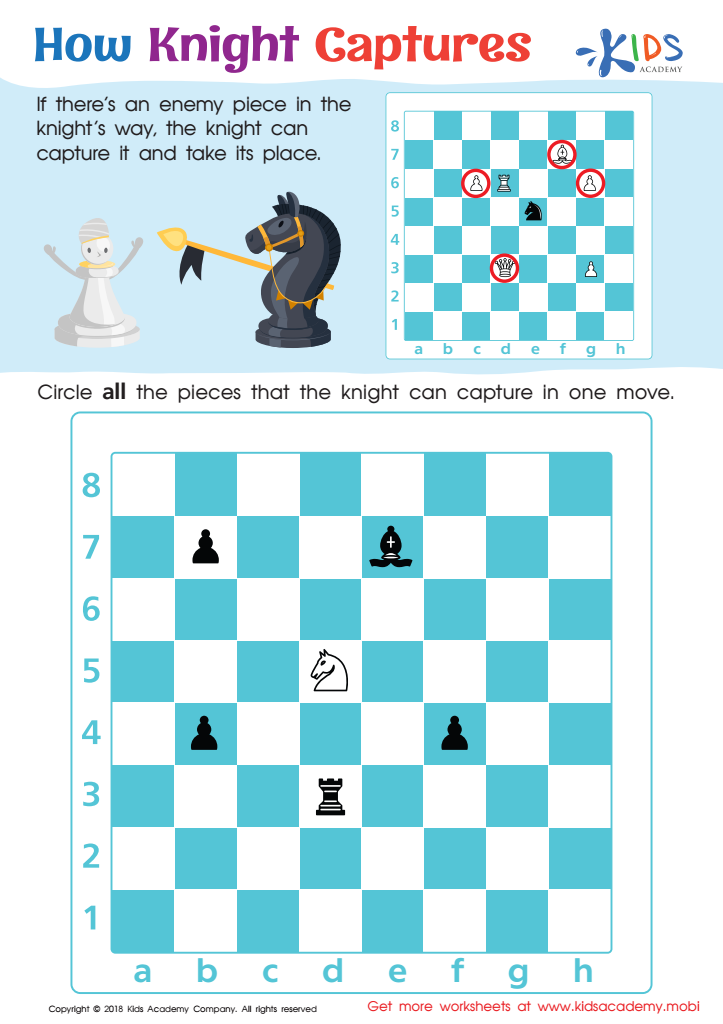

How Knight Captures Worksheet
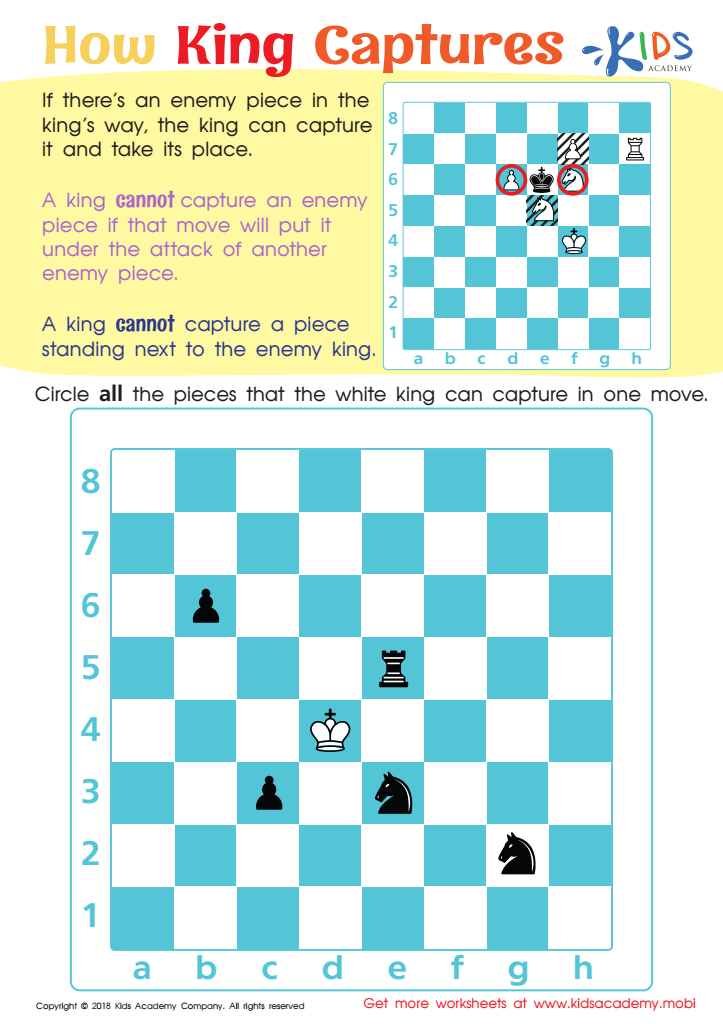

How King Captures Worksheet
Problem-solving practice through chess for ages 4-7 holds immense developmental benefits that parents and teachers should consider. Firstly, chess imparts critical thinking skills. Young children learn to analyze situations, make strategic decisions, and anticipate consequences, which fosters logical reasoning. By tackling complex chess puzzles, kids enhance their problem-solving abilities, which are crucial for both academic and life challenges.
Secondly, chess nurtures patience and concentration. Children must ponder their moves carefully, which builds their attention span—a vital skill for school tasks like reading and math.
Additionally, chess encourages perseverance. Not every game ends in a win; children learn resilience by coping with losses and persisting to improve. This growth mindset is foundational for later academic and personal success.
Chess also teaches planning and foresight. Young players must think several steps ahead, an ability that translates to planning school projects and managing daily routines.
Finally, chess is inclusive and enjoyable. Unlike many sports that demand physical prowess, chess is accessible for all, making it a fantastic equalizer. The game's enjoyment fosters a lifelong love for learning and mental challenges.
Hence, integrating chess into the early years curriculum isn't just fun; it's an investment in a child's cognitive, emotional, and social development.
 Assign to My Students
Assign to My Students




